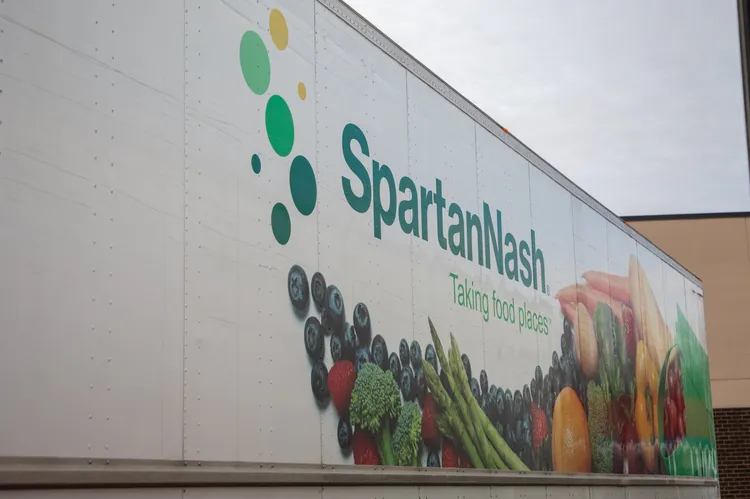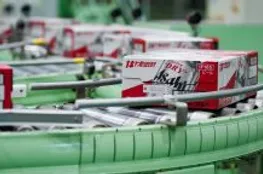KENT COUNTY, MI — The pending sale of SpartanNash to C&S Wholesale Grocers for $1.77 billion is big news for the West Michigan business community, and could usher in significant changes for the Byron Township-based grocery store and food distribution company. SpartanNash has about 20,000 employees and operates a network of grocery stores and food distribution centers across 18 states, largely in the Midwest and along the East Coast. Here are six takeaways about the deal , announced Monday, June 23. C&S is paying a significant premium for SpartanNash Under the deal, which has been approved by the board of directors at both companies, C&S Wholesale Grocers would pay $26.90 per share of SpartanNash stock. That represents a 52.5% increase from last week, when SpartanNash’s stock was trading at $17.64. SpartanNash grocery stores are operated under numerous brands, including Family Fare, D&W Fresh Market, Forest Hills Foods and Martin’s Super Markets. The purchase creates an expanded distribution network The merger would combine SpartanNash’s network of nearly 200 brick-and-mortar grocery stores and 18 food distribution centers with C&S Wholesale Grocers’ food distribution network. Together, the combined company would operate more than 200 grocery stores and nearly 60 food distribution centers. Those distribution centers would provide wholesale groceries to close to 10,000 independent supermarkets and retailers. Who is C&S Wholesale Grocers? C&S Wholesale Grocers, founded in 1918, is based in Keene, New Hampshire. The privately-owned company is a wholesale grocer, meaning it supplies groceries to independent supermarkets and other retailers. According to the company, C&S Wholesale Grocers supplies more than 7,500 independent supermarkets, chain stores and military bases with 100,000 different products. In addition to its wholesale business, C&S owns 11 Grand Union grocery stores in New York and Vermont and it owns Piggly Wiggly stores in the Midwest and the Carolinas.
In addition to its network of nearly 200 grocery stores, SpartanNash says its 18 food distribution centers provide wholesale groceries to 2,300 independent retail locations across the country as well as U.S. military commissaries and exchanges.
What’s the benefit of the deal? In a joint news release, the companies said the deal would expand their food distribution network for independent retailers, create greater efficiency and scale, and preserve community grocery stores and pharmacies. “Being able to operate at a larger scale, supported by the combined innovative capabilities of the two companies, enables a more efficient supply chain as well as an ability to secure the best possible delivered cost of goods and promotional discounts, which are expected to translate to better pricing for community retailers and at the shelf for consumers,” the release said. The release did not detail what that “better pricing” would look like for customers. The companies said the deal comes at a time when profit margins in the grocery industry “are very low,” averaging about 1.6%. “The stability of the combined organization will allow the combined company and its customers to better compete against various extremely large global grocers in the U.S. food-at-home space, a more than $1 trillion annual industry,” the release said.
What does the deal mean for SpartanNash’s presence in the Grand Rapids suburb of Byron Township? SpartanNash officials did not make a company representative available for an interview Monday when the deal was announced, and did not immediately respond when asked what the sale would mean for the company’s headquarters at 850 76th St. SW. However, in an emailed response Tuesday, June 24, the company said “C&S has informed us that it expects to continue operating our facilities, including our retail stores, DCs and service centers, after the transaction is completed.”
When is the deal expected to close? While the sale was approved by both company’s boards of directors, SpartanNash shareholders must also sign off on the transaction as must federal regulators, according to a release. Officials say they expect to close the deal late this year.
























